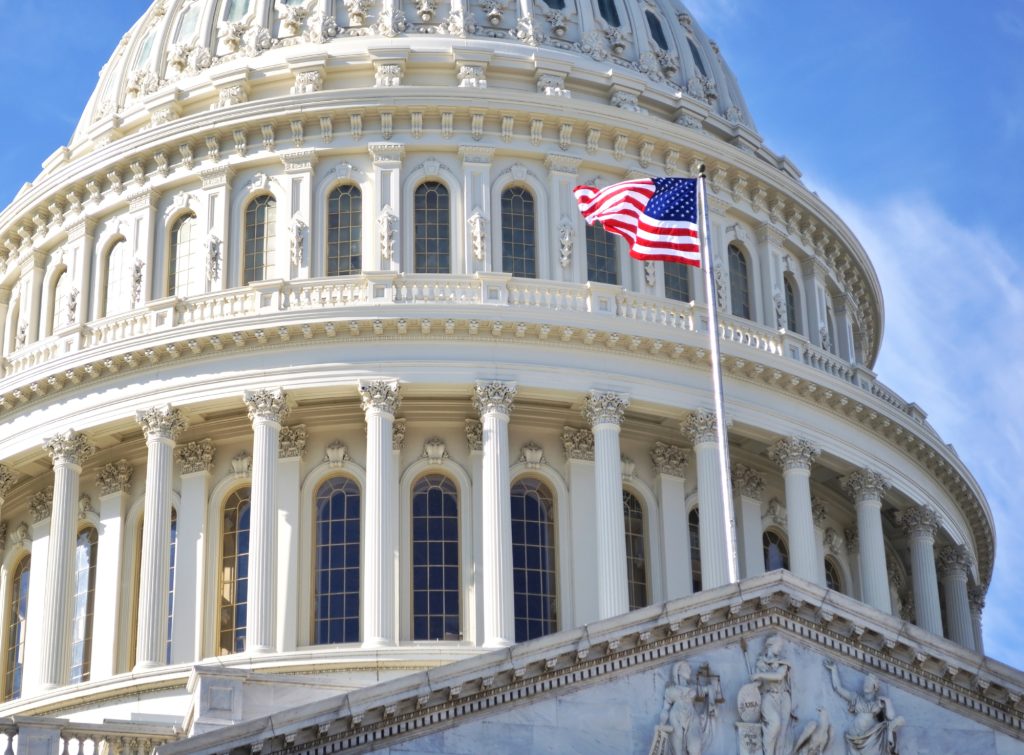By Geoffrey Paul
Federal lawmakers have been preparing for next year’s $4.6 trillion fiscal cliff for years, and with most of the election results in, the outlook for tax policy negotiations and how they could impact the nonprofit sector is crystallizing.
Congress appears poised to move quickly, which could put the nonprofit sector and its resources at risk. How the sector responds in the weeks and months ahead will determine its fate.
It appears the Republican party will be firmly in the driver’s seat as Congress considers tax code changes during 2025. Former President Donald J. Trump won convincingly and can credibly claim a broad mandate to enact his preferred policies, which include tax cuts for individuals and businesses. The GOP handily won control of the U.S. Senate and is on track to retain control of the House, even if by a slim margin, which would allow Congress to bypass the Senate filibuster and enact certain tax and spending laws with simple majorities.
Unified GOP Control Heightens the Risks to Nonprofits
The expected and required speed, along with constraints necessitated by the reconciliation process, presents significant threats to the entire 501(c) section of the tax code. Trump proposed more than $7 trillion worth of tax cuts on the campaign trail, and it remains unclear how they might be paid for. Revenue from tariffs might only go so far.
In 2017, the last time Republicans took a whack at major tax reform, the GOP implemented a new tax on large university endowments to offset some of the costs associated with cutting taxes for individuals and businesses. They also expanded the unrelated business income tax on nonprofits, although part of that expansion was subsequently rolled back in 2018 after an organized advocacy effort successfully convinced lawmakers they erred in taxing the parking spaces and transportation benefits churches and other tax-exempts provide their employees and volunteers.
Tax code changes that squeeze nonprofits for revenue are on the table once again in 2025. Prominent Washington, D.C. think tanks have floated broadly targeting tax-exempts to raise federal funds.
The threat of increased taxation feels more real than in decades, given how the sector has been scrutinized by Congress lately. Ways and Means Chair Jason Smith (R-MO) and other tax-writing Republicans devoted significant time and energy investigating various corners of the tax-exempt sector. Under Smith’s leadership, the Ways and Means Committee has held hearings, introduced legislation, and written letters questioning the tax-exempt status of certain foundations, hospitals, universities, and charities over the past few years.
Expect similar efforts to continue in 2025 and beyond should Republicans retain control of the House, and they could manifest in bills and laws that sap nonprofit resources.
Congress will also have to decide whether to extend the increased standard deduction, and even expand it further. The doubled standard deduction has had knock-on effects for nonprofit revenue streams: by pushing fewer taxpayers to itemize, making giving more expensive by making the charitable deduction unavailable for a greater share of the tax base.
There are still other dials lawmakers can turn that would put downward pressure on nonprofit revenue streams, like lowering the adjusted gross income limits on charitable contribution deductions, restricting deductions by reviving the “Pease Limitation,” and adjusting the estate and gift tax exemption thresholds.
If Pushed, Congress Can Strengthen and Protect the Sector
There are opportunities for Congress to boost nonprofits next year. Sen. James Lankford (R-OK), a tireless sector advocate, has consistently indicated that enacting legislation that incentivizes charitable giving for all taxpayers will be a top priority of his in 2025, and longtime tax writers like Lankford should be empowered when Republicans formally gain control of the Senate Finance Committee come January. The second Trump White House can also act to protect charitable giving vehicles and private foundations, like donor-advised funds, by reconsidering regulations that would curtail their use.
On the spending side of the ledger, Republicans have an opportunity to expand opportunities for nonprofits to secure community project funding — commonly known as earmarks — by expanding the list of agencies from which House lawmakers can direct funding to 501(c)(3)s.
How the nonprofit sector fares in 2025 will come down to education. Most federal lawmakers who were in office the last time Republicans had unified control of Congress and the White House are gone, and the public servants and their staff who have taken their places may not understand how integral nonprofits are in supporting their communities. There’s no better time than now for the sector to get to work in Washington, D.C.
*****
Geoffrey Paul is senior government relations associate at Integer in Washington, D.C.
